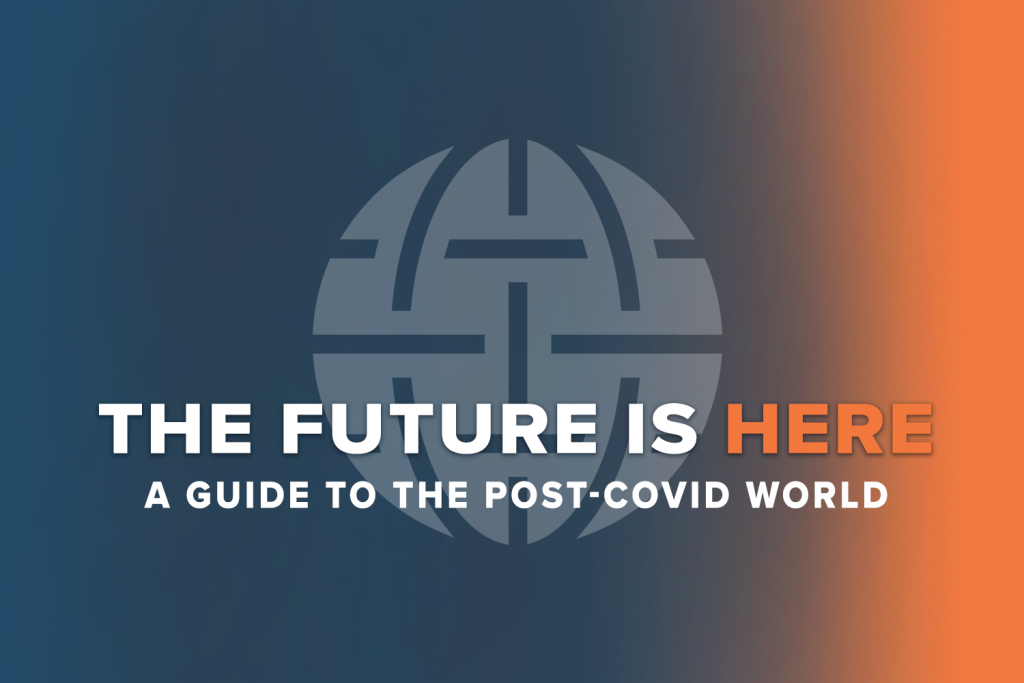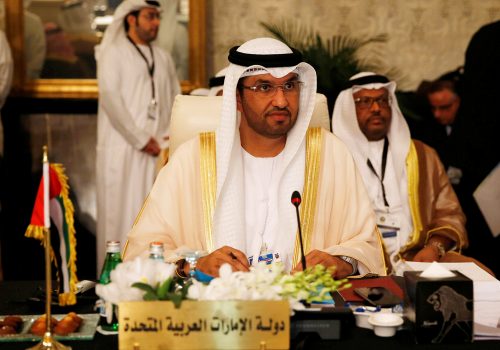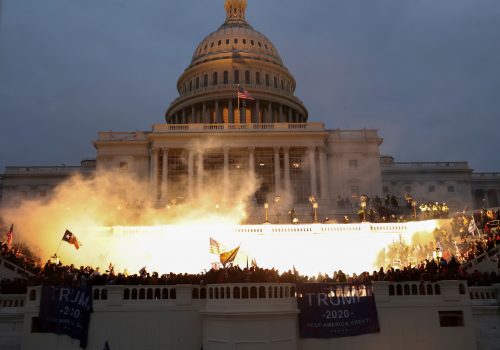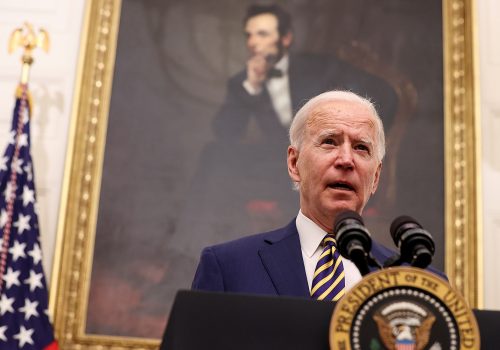The future is here: A guide to the post-COVID world 01/29/2021
Welcome to your guide to where the world is headed during the pandemic era and beyond. Each week, we’ll bring you the latest and most significant expert insights and international news about how coronavirus is reshaping international affairs. To stay updated each week, sign up to the newsletter here.
Let’s take a spin around the globe, in seven minutes or less.
In top stories this week:
- European officials and drugmaker AstraZeneca are at loggerheads over vaccine-supply challenges.
- We’re not necessarily on a path to more global economic stability, the International Monetary Fund (IMF) warns.
- The fashion industry, hit by global restrictions, goes digital with its runways.
- But first…
The big story
This week’s key theme: Lessons from Israel’s vaccine success
Israel has emerged as something of a poster child in the global race to return to some kind of post-pandemic normalcy. What has it done right?
As the Financial Times reports, Israel got around competition with far bigger countries for access to COVID-19 shots by promising to share data from its vaccination drive with Pfizer. While the country has suffered some of the worst outbreaks of the virus, factors including its longstanding public-health infrastructure—older than the state of Israel itself—and a single electronic-records system have helped the country make speedy progress, The Atlantic says.
The country has given first shots to more than 2.6 million of its 9 million citizens, and second shots to just over 1.1 million. Most of those shot recipients are more than sixty years old, the Financial Times says. But these advances in vaccine distribution haven’t yet transformed pandemic-era life in the country, notes The Wall Street Journal. Restrictions to contain the spread of COVID-19 remain in place (Israel is in its third national lockdown) and variants of the virus are popping up around the world, posing new dangers to the country.
And even the most successful countries in this next phase of the pandemic continue to face challenges with their vaccine rollout. Israel’s Arab minority is wary about getting a COVID-19 shot, while many Ultra-Orthodox Jewish communities are ignoring restrictions altogether, according to Politico.
Subscribe to The future is here: A guide to the post-COVID world
Sign up for a weekly roundup of top expert insights and international news about how coronavirus is reshaping international affairs.

The world in brief
Insights from across the planet, in ten bullets or fewer
- EU-AstraZeneca: acrimonious, angry, and chaotic. That’s how media from The Washington Post to Bloomberg describe relations between the European Union (EU) and drug giant AstraZeneca. Not only has there been a delay in the supply of AstraZeneca’s COVID-19 vaccine to the bloc, as CNBC reports, but AstraZeneca said deliveries to Europe would be lower than anticipated, while sluggish vaccination campaigns have put European governments on the defensive, Bloomberg adds. The drugmaker says it’s working to resolve production issues, while noting that the EU put in its order three months later than the United Kingdom.
- QUOTE: “With so few vaccines on the market, fear of a supply crunch is top of mind and beggar-thy-neighbor fights seen last year over masks and ventilators are making a comeback,” Lionel Laurent writes on Bloomberg. “And as ugly as protectionism is, it does have an upside. The more these spats flare up, the more countries will see how interdependent they are in this health emergency.”
- Big government makes a big comeback in Europe. The havoc caused by the pandemic has reignited state intervention in Europe’s biggest economies, Bloomberg Businessweek reports. The economic blow of COVID-19 pushed Europe to ditch the austerity measures that hampered the region’s economies following the global economic crisis.
- Global economic stability is on shaky ground. Overconfidence among investors, fueled by expectations for economic recovery and further government aid, raises the risk that asset prices drop suddenly, posing a threat to global economic stability, The Wall Street Journal cites the IMF as saying in its latest global financial-stability update. Vaccine shortages could hold back economic recovery in lower-income countries, the Financial Times reports, citing the same report.
- QUOTE: “Inequitable distribution of vaccines risks exacerbating financial vulnerabilities, especially for frontier market economies,” the IMF wrote, according to the Financial Times.
- While the super-rich have recovered from pandemic losses, the poor may need a decade to do so. The world’s one thousand richest people have recouped economic losses caused by the pandemic within nine months, but it could take the poorest more than a decade to recover from the impact of COVID-19, CNBC reports, citing the charity Oxfam. Women and ethnic minorities are the hardest hit, Oxfam says in the report entitled “The Inequality Virus.”
- The United Kingdom marked a grim milestone. The United Kingdom surpassed 100,000 deaths from COVID-19, higher than the civilian toll during World War II, Reuters reports. The milestone came just a week after the United States surpassed 400,000 deaths. Many more deaths will follow before a large-scale vaccination program takes effect, said Chris Whitty, England’s chief medical officer. Travelers arriving in the United Kingdom from countries with high COVID-19 risks will have to quarantine for ten days in accommodation provided by the government, in a new move to stop new variants of the virus, the news agency says separately.
- QUOTE: “It’s hard to compute the sorrow contained in that grim statistic,” UK Prime Minister Boris Johnson said of the death toll, The New York Times reports. “You’d exhaust the thesaurus of misery. It’s an appalling and tragic loss of life.”
- The (fashion) show must go on. With the fashion industry among those reeling most from global travel restrictions, couturiers in Paris are drawing on digital solutions, The Associated Press reports in a photo story featuring designer Julien Fournie, who is making a film of his collection to stream online. Other fashion houses are also streaming live or broadcasting pre-recorded runway shows on the internet.
The inside scoop
Insights from the Atlantic Council



